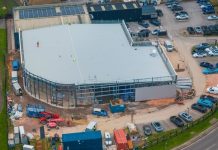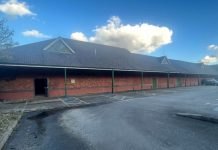A greater diversity of homes will be required to keep house prices affordable as the population and the economy is set to grow in Birmingham is the conclusion of JLL’s UK latest property forecasts.
The property specialists’ analysis shows that house prices in the city centre grew by 8.7% in the past 12 months, with the greater Birmingham area expected to witness one of the strongest regional rates of sales price and rental growth over the next five years at 16.5% and 15.9% respectively.
Birmingham is also predicted to see its economic growth outpace the regional averages with GVA growth at 2.2%, employment at 0.9% and population at 0.8 per annum from 2020 to 2024.
New housing models including micro-living and co-living – with an emphasis on communal rather than personal space – need to be considered incorporating wellbeing and amenities to cater for the rising demand.
Simon Horan, JLL’s Birmingham-based director who leads its new Living business across the Midlands, said: “Urban living has taken hold in Birmingham city centre in recent years and is expected to grow even further with rising urbanisation and increased investment in infrastructure including HS2.
“Most city centre residents are young professionals aged under 35 who are attracted by the enhanced public transport and further improvements when HS2 arrives bringing faster connectivity to the capital and other major conurbations.
“Diversity of available housing product and the introduction of new micro-living and co-living models and an increase in build-to-rent will serve to broaden the city’s appeal and ensure city living is accessible to and in line with younger demographics.”
The average sales price is £250,000 and rent is £1000 for a 2 bedroom flat.
Horan adds: “To date there has been little build-to-rent developments in the city. There are two schemes under construction including IM Properties Newhall Square for L&G with more to follow in the medium-term, which will help absorb the increasingly strong rental demand.
“An active development pipeline will help the city keep pace and we have seen reports that co-living provider, The Collective is looking to expand outside of London to the regions and Birmingham is on its radar which is good news. ”
JLL also recommends that the city’s housing developers embrace modern construction methods and make climate reduction commitments in line with Birmingham’s ambition to become Net Zero Carbon by 2030.
Horan says: “One in two people now considers air quality when purchasing a new home so developers should focus on utilising modern construction techniques which drive down the impact on the environment.
“Birmingham’s commitment to tackling climate change with a sustainable and inclusive green transport network – with a traffic-free city centre and reallocated road space at the heart of its recently published transport plan – is the way forward for cities looking to compete on the world stage in the years to come.
“Businesses and residents alike are recognising the benefits – and being able to get to and from the 2022 Commonwealth Games venues via fast, cost-effective public transport is going to help create a lasting positive impression for visitors to the city, too.”





















